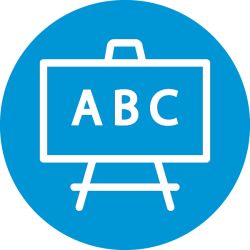Early Childhood Development


Significance
All children should get the care and support they need in the first years of life. Early experiences shape lifelong learning, behavior, and health. Access to quality childcare and parenting support helps kids and families thrive.
Nurturing Relationships
Nightly Reading
When caregivers read to their children, they help support not only the child’s vocabulary development, but also their social/emotional development. Listening to stories can help children build confidence and deal with their feelings. Reading and storytelling encourages language development, reading comprehension, and school success. Research shows that by the age of three, children from high-income families had heard 30 million more words than three-year olds from low-income families. Through bolstering early exposure to reading it is possible to increase school readiness for young children.
Adverse Childhood Experience (ACE)
Adverse Childhood Experiences (ACE) include experiencing sexual abuse, verbal abuse, physical abuse, witnessing domestic violence, having divorced/separated parents, a household member with substance abuse issues, a household member in prison or mentally ill household member. Reporting four or more of these experiences constitutes a high ACE score and is commonly understood to have a harmful effect on adult health outcomes. The Washington State Family Policy Council states “the cumulative stresses of ACEs are the most powerful determinant of the public’s health and the strongest common drive of mental, physical, and behavioral health costs.” Through tracking the populations with the highest exposure to ACE, we can understand who may be at an increased risk of poor health outcomes.

Quality Early Childhood Development
Participation in Early Achievers
High-quality childcare prepares children for success in early education and throughout life. Research has shown that children who have access to high-quality educational opportunities in childcare settings obtain more years of education and are more likely to graduate from college than children without the same access to quality care. Early Achievers is Washington’s Quality Rating and Improvement System (QRIS) that provides training, coaching, and incentives to childcare providers to promote early learning and development. Through ensuring that all childcare facilities are high-quality, the State can support healthy development and school readiness.

Affordable Early Childhood Development
Childcare Cost Burden
Childcare is often a necessary expense for working families. Many families pay a significant portion of their earnings for childcare and cost can be a burden or barrier for some families seeking care for their children. In Washington, the average annual cost of full-time childcare in a center is more than the cost of the average tuition and fees at a public college.
School Readiness
Kindergarten Readiness
Transitioning into kindergarten is an important part of a child’s early education. Children who enter school behind others in their age group often struggle and must do more work to catch up with their peers. Early assessment is a tool that can cue early intervention for children who do not yet have skills typical of their age group to received tailored instruction.
